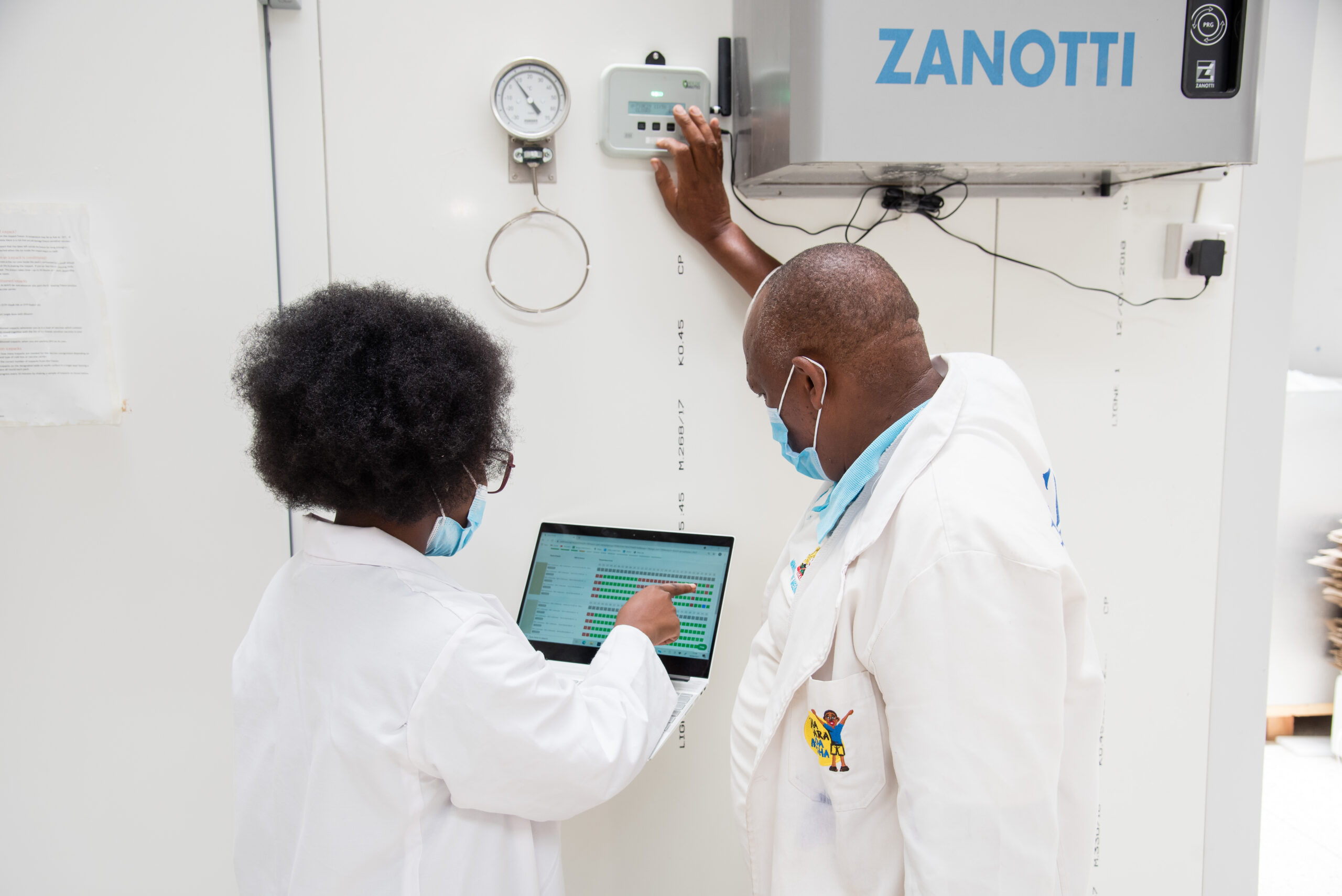Foundation announces new grants to accelerate potential of digital health
BOSTON – The Patrick J. McGovern Foundation has awarded more than $5.8 million in new grants for innovative data- and AI-driven approaches that support digital transformation of health systems and healthcare across the globe.
Digital technologies – from remote sensors and digital medical records to virtual care and data-based treatment decisions – are transforming the ways people access and utilize health services. Digital solutions created to expand coverage of services, support frontline practitioners, and empower individuals to have more agency in their health journeys are fundamental to achieving ambitious targets to ensure billions are protected from health emergencies and enjoy better health and well-being.
However, the uptake of digital health solutions has been uneven in practice and historically underfunded, with many countries directing only 0-1% of public health budgets toward digital health. Across all geographies, fragmented approaches to data governance and system design risk contributing to existing inequities in healthcare.
“While the COVID-19 pandemic accelerated the adoption of digital technologies in the delivery of healthcare, there is critical work ahead to ensure those innovations help improve, not undermine, health equity,” said Vilas Dhar, President of the Patrick J. McGovern Foundation. “With these grants, we are focused on building essential capacity to use data, digital tools, and artificial intelligence to design people-centered, accessible models of care.”

“To fully realize the benefits of digital innovation in health, including artificial intelligence, greater investments are needed in enabling building blocks – from supporting government and practitioner decision-making to ensuring data systems are responsive and inclusive,” noted Rebecca Distler, the Foundation’s Strategist for AI, Data, and Digital Health. ”Our new grants reflect ongoing exploration of how to ensure digitally-enabled approaches continue to put people and communities at the center of health interventions.”
The portfolio includes a wide range of organizations – from new and small nonprofits to established research institutions – working in countries across four continents. It collectively represents an ecosystem approach, from standards and exchange architectures to research and project implementation to governance and practitioner support.
“We’re thrilled to partner with the Patrick J. McGovern Foundation, which shares our commitment to advancing health equity through data-driven and country-led solutions,” Nithya Ramanathan, CEO & Co-Founder of Nexleaf Analytics, said. “Our organizations believe that by supporting practitioners and investing in local leadership, countries can be equipped to drive their own decisions and build lasting, scalable digital solutions.”
“We’re thrilled to partner with the Patrick J. McGovern Foundation, which shares our commitment to advancing health equity through data-driven and country-led solutions.”
Nithya Ramanathan, CEO & Co-Founder of Nexleaf Analytics
The 2021 grants include:
Asia eHealth Information Network (AeHIN) to support core network activities, updates to the Mind the GAPS framework, and regional FHIR trainings. ($175,000)
Central American Health Informatics Network (RECAINSA) to support core network activities and provide additional support for AI maturity assessments. ($145,597)
Community Health Impact Coalition (CHIC) to strengthen and expand a multi-country community health data harmonization collaborative, including support for a working group on community health information system interoperability. This grant complements a matching campaign led by Focusing Philanthropy to scale research driven by the collaborative. ($200,933)
D-tree International to support the government of Zanzibar in maximizing the value of their community health data by co-developing a governance framework for data as a global good. ($427,324)
Duke Institute for Health Innovation to work with the Aga Khan University to develop analytical frameworks to help clinical and operational decision-makers audit, evaluate, and monitor AI systems in healthcare settings. ($555,056)
GDI Solutions to partner with HealthEnabled to support a participatory redesign process of the Global Digital Health Index (GDHI) to align with the WHO Digital Strategy and reflect developments in digital health, pandemic preparedness, and artificial intelligence. ($300,000)
Global Digital Health Network to advance the field of global digital health through knowledge management; networking; and promotion of best practices, lessons learned, and dissemination of global resources. ($200,000)
Jembi Health Systems to advance interoperability in low resource healthcare settings by upgrading, modernizing, and extending OpenHIM. ($200,000)
Khushi Baby to support implementation of the Community Health Integrated Platform in Rajasthan, inclusive of integrating AI/ML models for primary care risk-stratification. ($243,000)
Medtronic Global Health Foundation for a collaboration with Health Builders and the Government of Rwanda to pilot a digitally-enabled, community-based platform for managing diabetes and hypertension. ($500,000)
Meridian Institute to support the Lacuna Fund’s health equity track, supporting the creation, augmentation, and aggregation of machine learning datasets that are representative of affected populations, and more likely to lead to equitable health outcomes. ($250,000)
Native BioData Consortium (NBDC) to support creation of an Indigenous-centered data governance framework for health data and build a network of Indigenous AI/ML practitioners for tribal nations in the United States. ($400,000)
Nexleaf Analytics to support country-led, data-driven decision-making on vaccine cold chain management through partnerships with the Government of Malawi and the East African Community Regional Centre of Excellence (RCE) for Vaccines, Immunization, and Health Supply Chain Management. ($580,000)
Ona Systems to create an open source digital health toolkit for development and implementation of FHIR native data collection and case management apps. ($369,444)
Population Services International to introduce a combined AI-powered symptom checker and provider location services tool to low-income consumers in Vietnam to help connect them to high quality healthcare services. ($545,623)
University of California, San Francisco Foundation: Neuroscape to advance the Multimodal Biosensing Program to leverage AI and data science to gain a deeper understanding of an individual’s state in real-time, to eventually make improvements in global mental healthcare. ($225,000)
University of California, San Francisco Foundation: Unidos en Salud to support provision of COVID-19 testing and vaccination in high-risk communities as well as related data collection and dissemination. ($250,000)
University of Chicago, Center for Applied Artificial Intelligence to support Nightingale Open Science to drive research innovation at the intersection of medicine and data science by creating and open-sourcing high-dimensional, cutting-edge medical datasets. ($250,000)
The Patrick J. McGovern Foundation is a global 21st century philanthropy bridging the frontiers of artificial intelligence, data science, and social impact to create a thriving, equitable and sustainable future for all. The Foundation’s work focuses on bringing together academia, practitioners, and civil society to pursue the potential of AI and data science to address some of the world’s most urgent challenges.

